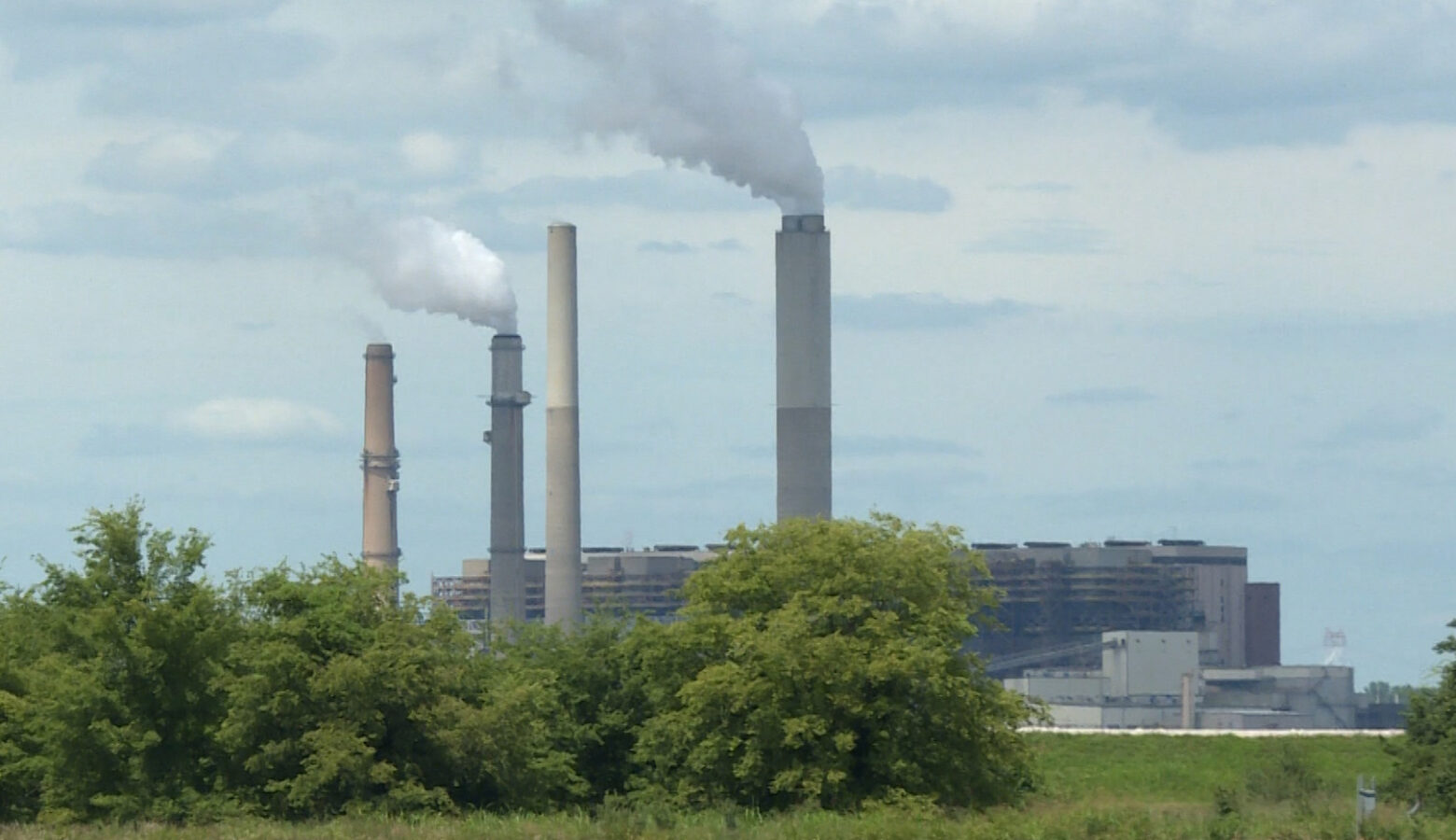Greenhouse gas emissions from utilities, industry trend down

Indiana industries emitted nearly 27 percent fewer greenhouse gas emissions than a decade ago. That’s according to data from the Environmental Protection Agency.
There was a slight uptick in emissions from 2020 to 2021, likely as industry ramped back up from pandemic lockdowns.
Most of the decline comes from coal plants closing. Power plants in Indiana contribute more than half of all greenhouse gas emissions in the state; a quarter comes from steelmakers like U.S. Steel and Cleveland Cliffs.
We could see emissions go down even more in the next decade. Six coal plants in the state are expected to retire by 2028. David Konisky is a professor at the O’Neill School of Public and Environmental Affairs at Indiana University.
“Things are moving in the right direction — which I think is notable particularly because we don’t have a lot of policy push inside the state to make this happen,” he said.
Though Konisky said there’s been some progress, many Indiana utilities plan to replace those coal plants with at least some natural gas — which still emits a lot of carbon dioxide. Gas pipelines can also leak methane — a more potent greenhouse gas than CO2.
Join the conversation and sign up for the Indiana Two-Way. Text “Indiana” to 73224. Your comments and questions in response to our weekly text help us find the answers you need on statewide issues, including this series on climate change and solutions.
Philip Stevens is a professor of atmospheric chemistry at Indiana University. He said a better idea would be to replace coal plants with renewable energy like wind and solar.
“I think that eventually may happen. But I think replacing them with natural gas is really just a short-term solution rather than a long-term solution to the CO2 emissions,” Stevens said.
Stevens expects we’ll also see decreases in transportation emissions if the Biden administration follows through with its standards for cars. The EPA’s Greenhouse Gas Reporting Program doesn’t track vehicle emissions.
Rebecca is our energy and environment reporter. Contact her at rthiele@iu.edu or follow her on Twitter at @beckythiele.
